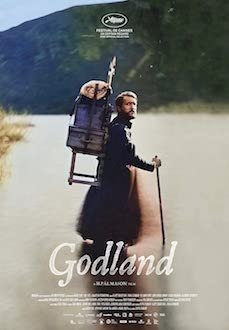Direction: Baltasar Kormakur
Country: Iceland / UK
The work of Icelandic writer-director Baltasar Kormakur has been consistently satisfying, with 101 Reykjavik (2000), Jar City (2006), and The Deep (2012) among his notable films. His latest effort, Touch, is a serious, affecting, and ultimately surprising drama that rewards viewers with some unexpected twists.
The plot follows Kristofer (Egill Ólafsson), an aging Icelandic restaurant owner who lives alone, grappling with the gradual loss of motor skills and tricky mind. Advised by his doctor to take care of any unresolved issues while he still can, he decides to travel to London - where he studied and worked 51 years ago - and then to Hiroshima during the unsettling times of the pandemic. He’s tries to reconnect with the love of his life, Miko (Yoko Narahashi).
Cleanly directed and credibly acted, Touch succeeds through its idiosyncratic focus on character and relationships. The film is structured with numerous flashbacks that illuminate the urgency behind certain decisions, in a manifestation of how a particular stage of life requires you to come back to your deepest emotions. Based on Ólafur Jóhann Ólafsson’s 2022 novel of the same name, the story doesn’t offer anything breathtaking and occasionally meanders with some lengthening detours. However, it's told with a quiet intensity, featuring elegant staging and culminating in a heartfelt conclusion.
Touch might be easily overlooked, but it remains a light watch, a candid representation of a profound love. It’s a pleasant surprise for fans of the genre.






































